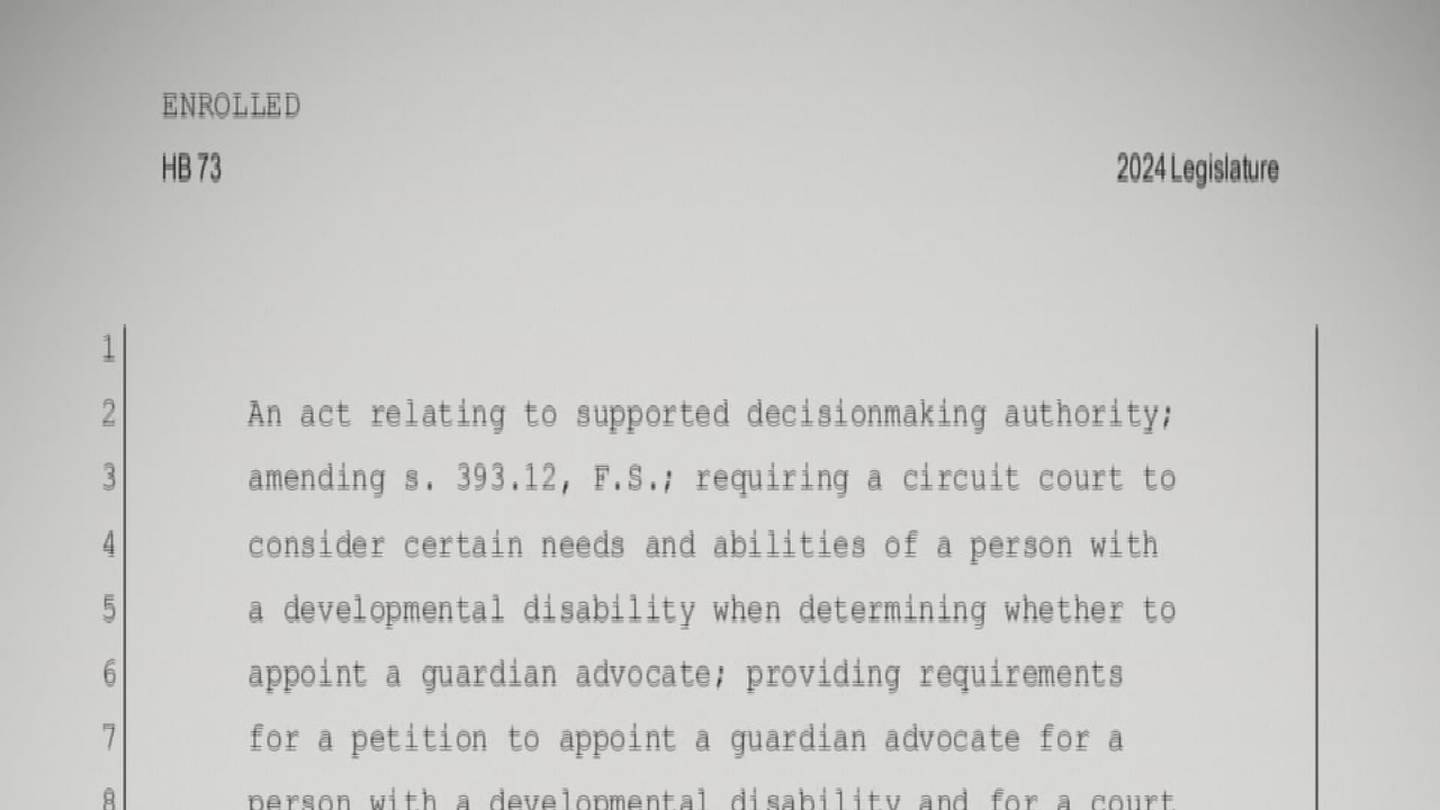ORLANDO, Fla. — Millions of Floridians with disabilities are celebrating a new law that protects their rights.
The law now requires courts to consider what are called “supportive decision-making agreements” before appointing legal guardians and allows people with disabilities to appoint helpers for certain tasks.
Read: Minors involved in gun-related crimes will face tougher penalties
Michael Lincoln McCreight became the first person in Florida to end a guardianship and enter into a supported decision-making agreement after he was stripped of his rights and spent four years lobbying for a change in the law.
Lincoln McCreight was born with Fetal Alcohol Syndrome, Autism and ADHD, but is now living his dream life.
He’s achieved a lifelong goal of working at Universal Orlando and is supporting himself in his Orange County home, something he says he doesn’t take for granted.
“I feel like I’ve gone from being a prisoner to being a free man,” Lincoln McCreight said.
Lincoln McCreight said he remembers the moment he reached the age limit for foster care, was declared incompetent and placed under guardianship.
“They take away all of your rights,” Lincoln McCreight recalled. “The right to vote. The right to marry. The right to choose who you date… they literally take everything away.”
Read: Social Security Administration strips benefits from woman with Down Syndrome
Lincoln McCreight has fought in court for years to regain those freedoms, and in 2016, doctors and a judge determined Lincoln was capable of making his own decisions, ending his conservatorship and moving him into a supported decision-making program.
“Having the support of family and friends you can trust can help,” Lincoln McCreight said.
He has spent the past four years lobbying for a new state law that would require judges to consider alternatives to guardianship, such as notarized, supported decision-making agreements.
Matt Dietz of Nova Southeastern Law School said the informal agreement gives advocates the privilege of helping people with special needs.
“Think of it as a continuum between most restrictive and least restrictive,” Dietz explained. “The courts now have to say, ‘You come in here as a guardian, but what types of decisions can this person make for themselves?'” before they say, ‘That person loses all rights.’
For Lincoln McCreight, the law was worth fighting for.
Read: End-of-year state test scores released: How Central Florida compares
“This will make a difference not just for one person, but for millions of Floridians with disabilities,” Lincoln McCreight said.
The law also requires that a third party approve the assisted decision-making agreement.
For example, schools and hospitals must allow appointed advocates access to confidential records if an agreement is in place.
Click here to download our free news, weather and smart TV app and click here to stream Channel 9 Eyewitness News live.

